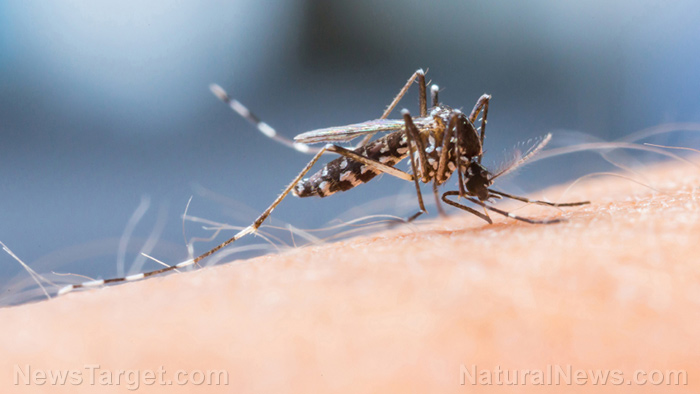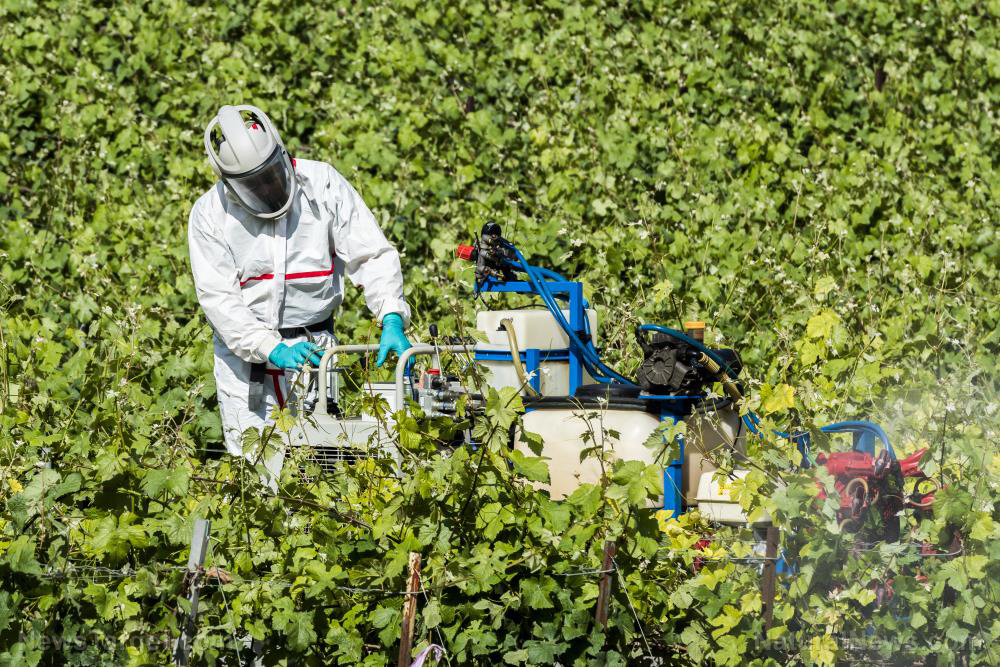Florida set to release 750 million genetically modified mosquitoes over faked “Zika” epidemic
08/23/2020 / By Divina Ramirez

State agencies in Florida have greenlit plans to release a horde of engineered mosquitoes in the Keys island chain. The mosquitoes, called OX5034, are set to be released in batches to control the local populations of Aedes aegypti mosquitoes that transmit diseases like dengue and (faked) Zika.
Despite strong objections from residents, officials in the Florida Keys Mosquito Control District (FKMCD) permitted the release of 750 million of the modified mosquitoes in 2021 and 2022. One group condemned the plan as a public “Jurassic Park experiment” that has used tax dollars and state resources.
Oxitec, an Oxford-based genetic engineering firm, has targeted the U.S. as a testing site for their latest strain of engineered mosquitoes. The mosquitoes are designed to pass on a lethal gene to female mosquito offsprings, causing them to die before adulthood. The gene has no effect on male mosquitoes, which do not bite.
Genetic engineering for disease control
Florida is no stranger to local outbreaks of dengue, a painful and debilitating disease. But despite the fact that the A. aegypti species, the main carrier of the disease, constitutes just one percent of its mosquito population, the state’s annual cost of fighting dengue amounts to more than $1 million.
In fact, in 2009 and 2010, local outbreaks of dengue left the FKMCD desperate for options to control the population of mosquitoes. Despite their best efforts, from rampant insecticide use to the release of mosquito-eating fish, local authorities had failed to contain dengue mosquitoes.
In 2012, state officials had reached out to Oxitec for help. The firm has been creating modified insects since its founding in 2002 to assist in insect control. The modified populations are designed to act as biological insecticides. This approach eliminates the health risks that insecticides pose to human and animal health.
Nonetheless, the recent decision garnered prompt backlash from residents and local groups. In fact, a petition on Change.org slamming Oxitec’s plan to use the U.S. as a testing ground for its modified insects listed almost 240,000 signatures.
In addition, officials from the non-profit bi-partisan organization called the International Center for Technology Assessment (ICTA) are condemning the federal Environmental Protection Agency (EPA) for its support of Oxitec’s proposal, claiming it had refused to conduct serious risk assessments of the experiment.
The EPA has been conducting risk assessments on the proposed modified mosquitoes for almost a decade since Oxitec’s first modified mosquito proposal in 2012. But the firm was able to create a second batch of mosquitoes amid the risk assessment and rescinded their initial proposal.
The second batch of modified mosquitoes, called OX5034, has since been released to much success in Panama and Brazil. One trial in Brazil reported an incredible 95 percent reduction of the area’s dengue mosquito population.
Florida has also been conducting public relations campaigns to remind residents that the modified mosquitoes are not going to pose health threats to humans. The female mosquitoes are set to die before adulthood, and the remaining males feed on nectar, not blood.
Nonetheless, these campaigns had little effect. Residents have continued to call for the rejection of the proposal, refusing to be treated as “guinea pigs.”
Federal agencies also greenlighted Oxitec’s proposal to release the modified mosquitoes in Texas beginning in 2021.
Independent research team raises alarms
To ensure that none of the female mosquitoes reach adulthood, the EPA permit requires Oxitec to conduct tests for at least 10 weeks. The firm is also required to alert state officials 72 hours before releasing the insects.
But despite these safeguards, an independent research group raised alarms in 2019, questioning the reported success of the firm’s earlier release of the modified mosquitoes.
Their findings, published online in the journal Scientific Reports, indicated that some of the female offspring of the engineered mosquitoes matured and produced offspring, too.
Local mosquitoes, the group claimed, then inherited pieces of the genomes of the modified mosquitoes, effectively creating a hybrid.
Nonetheless, both the paper’s authors and Oxitec officials agreed that there is not enough proof to suggest that these hybrids pose a significant danger to humans and animals.
The salient point to note from this is that something unanticipated happened, said Jeffrey Powell, a population geneticist from Yale University in Connecticut and a member of the research team.
Commenting on the findings, Oxitec officials said that it anticipated beforehand that the lethal gene was not 100 percent lethal.
Their earlier lab tests demonstrated that when some of the engineered male mosquitoes mated with wild female mosquitoes, about three percent of their offspring reached adulthood.
The paper is not without faults, and some scientists not affiliated with Oxitec had also expressed concerns regarding its findings.
For instance, Jason Rasgon, a scientist from Pennsylvania State University who specializes in insect-borne diseases, said that although the paper’s genetic findings are important, its strong assertions might fuel unfounded suspicions about the modified organisms.
Learn more about the environmental impact of GMOs at BioTech.news.
Sources include:
Tagged Under: biotech, dengue, environment, genetic modification, GMO, insane, medical experiments, mosquitoes, Zika
RECENT NEWS & ARTICLES
COPYRIGHT © 2017 BIO TECH NEWS



















